You have the right to be safe and to receive quality services from your NDIS service providers and workers.
Click each topic below to find out more.
What is the NDIS Quality and Safeguards Commission?
The NDIS Quality and Safeguards Commission (NDIS Commission) is an independent, national government agency that has been set up to regulate NDIS service providers to improve the quality and safety of their supports and services and ensure consistency across Australia. It started in WA on 1 December 2020.
Find more information on the NDIS Quality & Safeguards Commission website.
What is the difference between the NDIS, the NDIA and the NDIS Commission?
The NDIS is the National Disability Insurance Scheme. This is the scheme that supports people with disability to live a good life.
The NDIA is the National Disability Insurance Agency. This is the agency that funds your plan for supports and services.
The NDIS Commission is the NDIS Quality and Safeguards Commission. This is the agency that regulates the quality and safety of your NDIS supports and services.
The overarching goal is for a person to have a good life of their own choosing, with good quality and safe supports and services that uphold their human rights.
The NDIS Code of Conduct
What is the NDIS Code of Conduct?
The NDIS Code of Conduct sets out the minimum standards that people should expect from their NDIS supports and services. The NDIS Code applies to ALL workers and providers and is in addition to any other professional Code that the worker or provider must follow.
The NDIS Commission website has more information about the NDIS Code.
An easy way to learn about the NDIS Code!
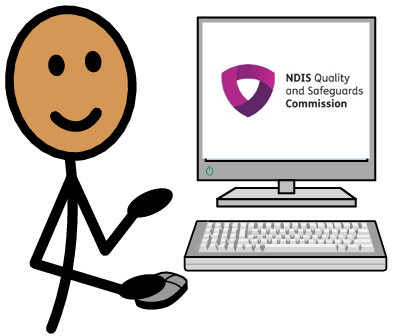
The NDIS Commission website has a free, online training course called the “Worker Orientation Module: Quality, Safety and You”. This course explains the NDIS Code and how it applies in everyday situations. The course is approximately 90 minutes long and is relevant for anyone in the NDIS, including workers, people with disabilities and their families.
Visit the Worker Orientation Module: Quality, Safety and You.
This training website also has other detailed training modules.
How to make a complaint
How do I make a complaint about the quality or safety of my NDIS supports and services?
You have the right to make a complaint if you are concerned about the safety or quality of your NDIS supports and services.
You can complain to your Service Provider OR directly to the NDIS Commission.
Complaints to the NDIS Commission can be made by phone or using their online complaint form. The phone line is national but there is a complaints team based in Perth, Western Australia.
IMPORTANT! Complaints about your plan or funding need to be made to the National Disability Insurance Agency (NDIA).
Tips for making a complaint
When making a complaint, it can be useful to list all the details about what happened, the impact it had on your safety, rights and well-being and how you would like the problem to be fixed. You may ask a friend or advocate for help to make your complaint. When contacting the NDIS Commission, you can also use the Interpreting Service and National Relay Service.
How does the NDIS Commission handle a complaint?
The NDIS Commission has a process for handling your complaint. It involves gathering more information from everyone involved to understand the complaint and working with you to find ways to fix it. You are kept informed during the process and can stop your complaint at any time.
See the NDIS Commission Complaints page to read about the process. The online form to make a complaint is at the bottom of the page.
What are my other options for making a complaint about my Services and Supports?
There are different places where you can complain about your NDIS Services and Supports. This resource lists the options for making a complaint depending on what you are complaining about. The main thing to remember is that complaints about:
· NDIS plans and funding are made to the NDIA
· NDIS quality and safety are made to the NDIS Commission
You can also complain about the way the NDIA or NDIS Commission acted when they were dealing with you.
'Registered' and 'Unregistered' NDIS Providers
What is the difference between a ‘Registered’ and ‘Unregistered’ NDIS Provider?
All NDIS Providers must abide by the NDIS Code of Conduct and are regulated by the NDIS Commission for that obligation. However, Providers can choose to be ‘Registered’ with the NDIS Commission or ‘Unregistered’ for the services and supports they deliver. ‘Registered Providers’ need to meet additional obligations set by the NDIS Practice Standards and are monitored and audited against these those standards.
See the NDIS Commission website for more detail about provider registration.
How do I know whether my provider is registered with the NDIS Commission and what types of supports and services are they registered to deliver?
There are 2 places where you can check:
- NDIS Commission website: NDIS Provider Register
- NDIS website: Provider Finder Tool
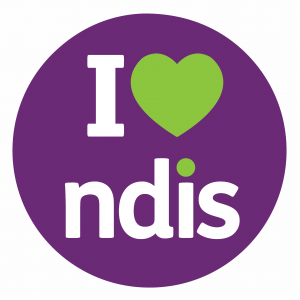
Registered Providers are also allowed to use the ‘I/we heart NDIS’ and ‘I/we support NDIS’ logos, as well as the tagline, ‘Registered NDIS provider’.
Can I choose whether to use a Registered or Unregistered Provider for my NDIS supports and services?

People who have self-managed or plan-managed funding can choose to use a Registered or Unregistered NDIS provider. People who have agency-managed funding must only use registered NDIS providers.
Important: some services can ONLY be delivered by Registered NDIS providers, regardless of funding type:
- Specialist disability accommodation
- Supports or services that use restrictive practices
- Specialist behaviour support
Compliance
How does the NDIS Commission make providers and workers comply with the quality and safety standards?
The NDIS Commission monitors how well providers are complying with their obligations through regular audits, monitoring providers’ incident and restrictive practice reporting to the Commission, NDIS worker screening as well as acting on complaints about providers and workers.
The NDIS Commission has powers to enforce providers to comply with their obligations, investigate allegations against providers and workers and take action, such as imposing penalties or banning providers or individual workers for serious breaches. These powers cover both Registered and Unregistered providers.
This is why it is important to complain to the NDIS Commission if you have a problem or see something that you are not happy with, so that you can help the NDIS Commission ensure ALL providers and workers comply with quality and safety standards. See information about how to make a complaint
Can I check if my provider or worker has not complied with NDIS Commission requirements?
You can check the Compliance and Enforcement Actions Register (Part 2) on the NDIS Commission website to see if your provider or worker has had an action against them.
NDIS Worker Screening
What are the different types of worker screening checks in WA?
Worker screening is a formal background check to see if a Worker poses a risk to a person they are supporting.
There are 3 types of checks in WA
- NDIS Worker Screening Check (NDIS Check)
- National Police Certificate (NPC)
- Working with Children Check (WWC Check)
Find out the main differences between each check.
What is NDIS Worker Screening?
NDIS Worker Screening checks a worker’s background, including their criminal history and previous workplace misconduct findings, to determine whether that worker should be cleared to work or be excluded from working with people with a disability. The check is ongoing and new information may trigger a re-assessment of the worker’s clearance.
What is the process for getting NDIS Worker Screening Check in WA?
Both EMPLOYERS and WORKERS have steps to do.
Importantly, Employers must join the Worker Screening Database on the NDIS Commission website and get an Employer ID.
Instructions for Employers
How to join the Database, get an Employer ID, link to your Worker, view clearance and get notifications.
Instructions for Workers
How to apply for the NDIS Check.
Positive Behaviour Support and Restrictive Practices
What is Positive Behaviour Support and Restrictive Practices? Why is the NDIS Commission involved?

The NDIS Commission’s role is to uphold the human rights of people with disabilities. The use of Restrictive Practices may impinge on a person’s human rights. So, the NDIS Commission promotes the use of Positive Behaviour Support strategies to reduce and, where possible, eliminate the use of Restrictive Practices.
See our webpage about Positive Behaviour Support and Restrictive Practices for more information.
These activity cards have been developed to generate conversations about positive behaviour support and restrictive practice. They are based on contemporary disability practice and align with the NDIS Quality & Safeguard Commission’s Regulated Restrictive Practice Guides.
What obligations do families need to meet if they directly hire their own support workers, and those support workers are asked to use restrictive practices?
If a family member is using a restrictive practice, they do not need to report the use to the NDIS Commission. The NDIS Commission does not regulate or monitor family members using restrictive practices.
However, if a family directly hires support workers, and those support workers are asked to use restrictive practices on a person, then the NDIS Commission’s rules about restrictive practices apply. The family must either use a Registered provider for their support workers or become a Registered provider themselves with the NDIS Commission.
Currently, Inclusion Australia have just completed a ‘Services-for-one’ project to work out how families can ‘Register’ with the NDIS Commission. Information about this project is on the Inclusion Australia website. There will be more information coming soon.
Keep up to date with NDIS Commission information
How can I keep up to date with NDIS Commission information?
The NDIS Commission publishes a quarterly newsletter called “SAFEguard”. See the NDIS Commission website for more information about receiving the Safeguard Newsletter.
The development of the resources on this page has been funded by the WA Department of Communities, Disability Services.


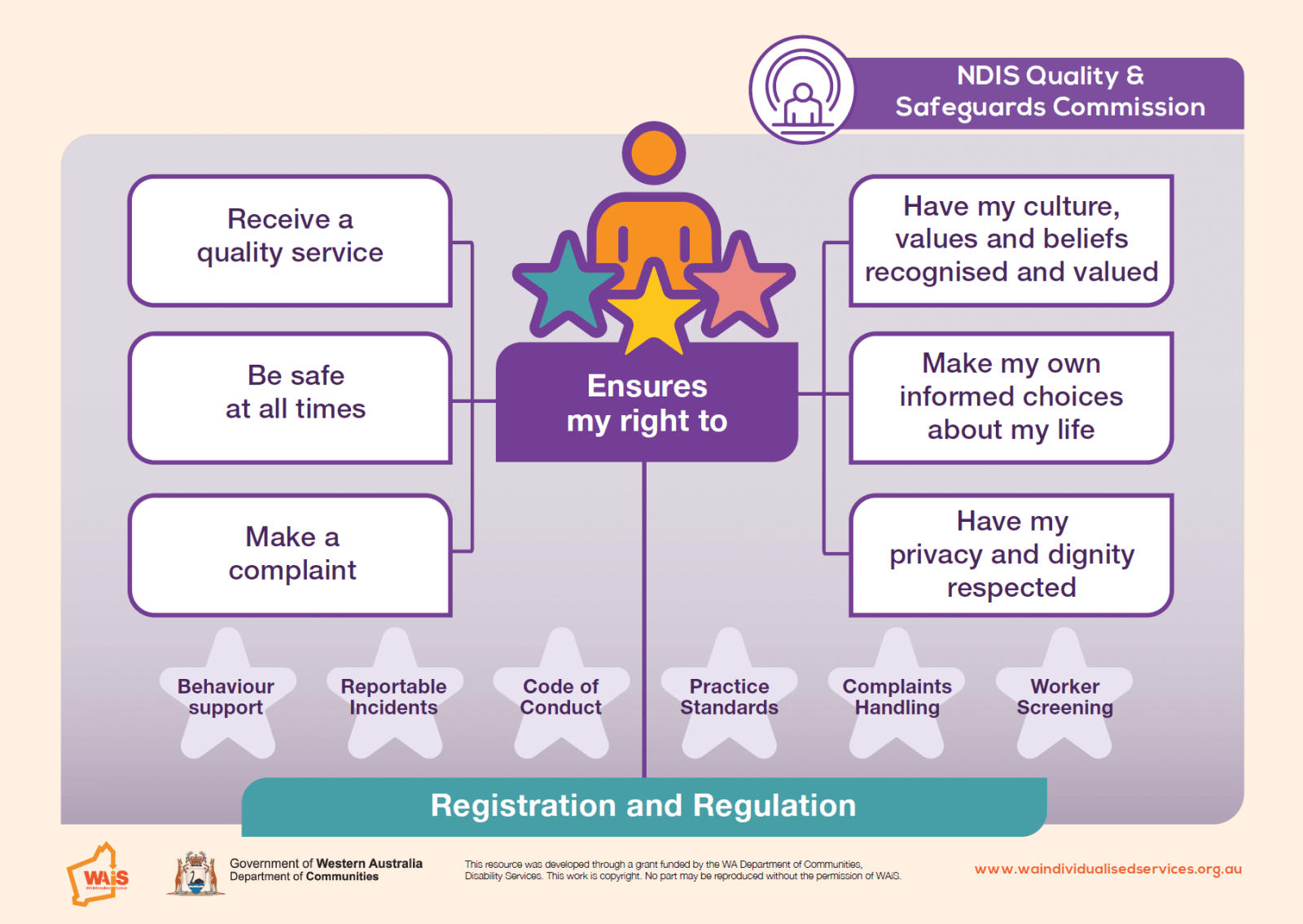
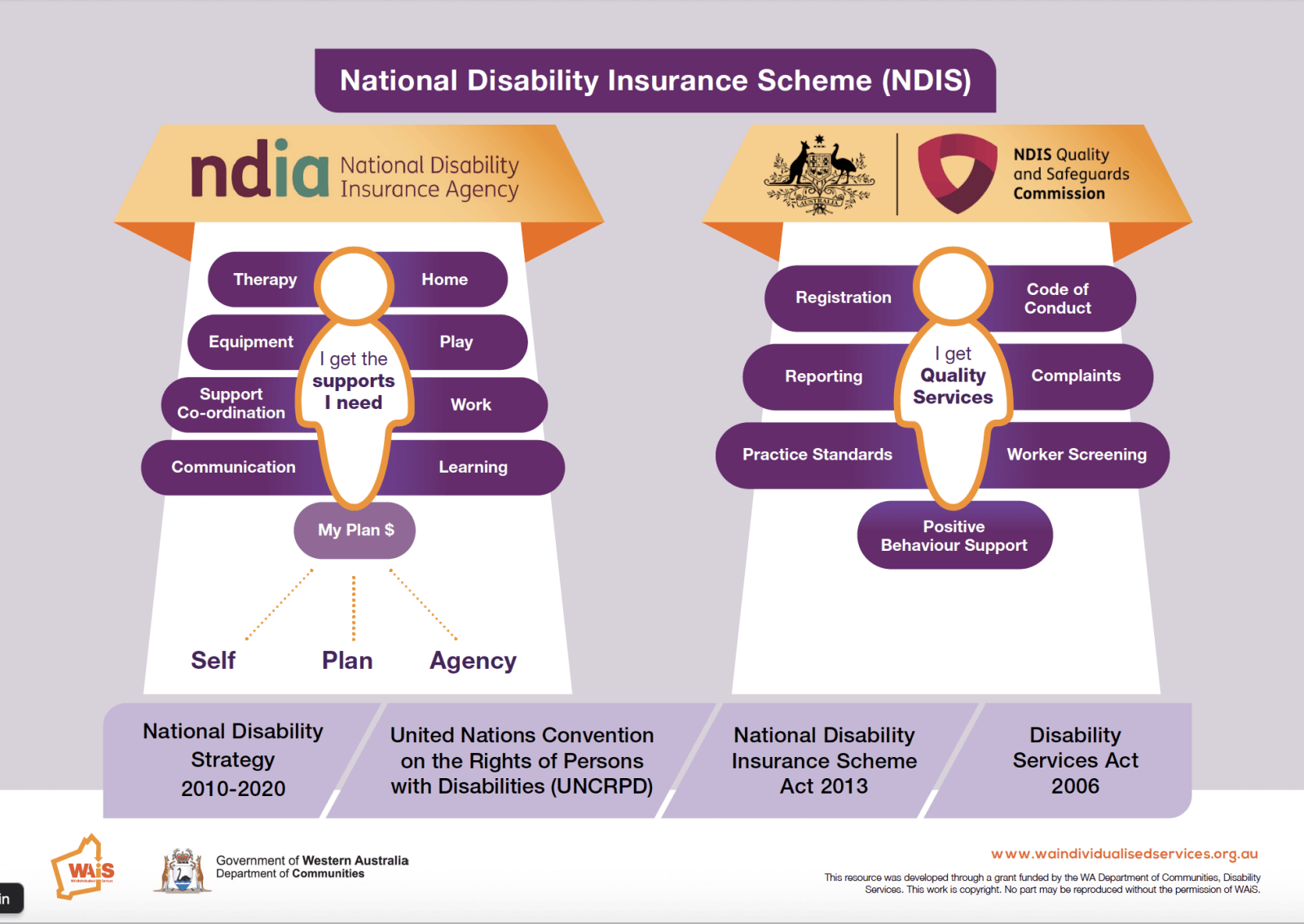
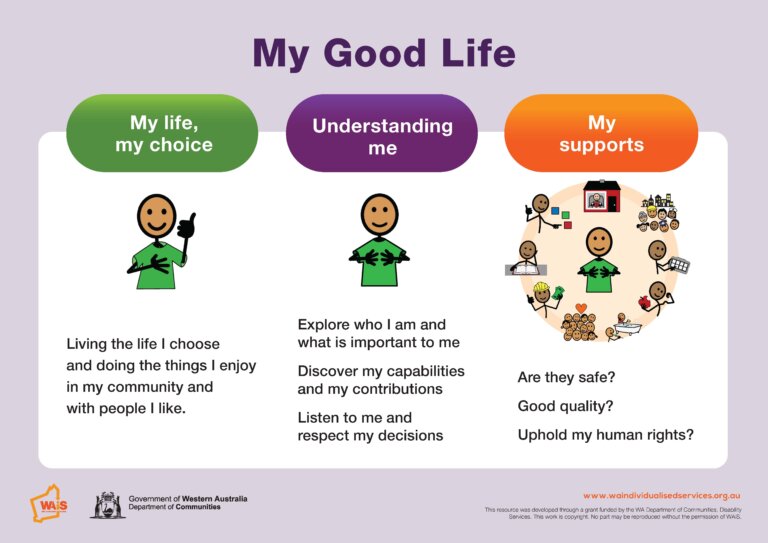
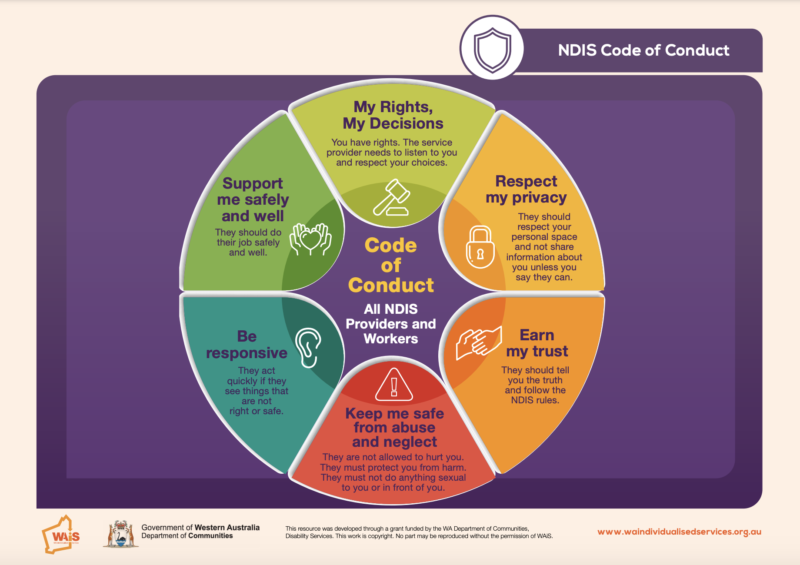
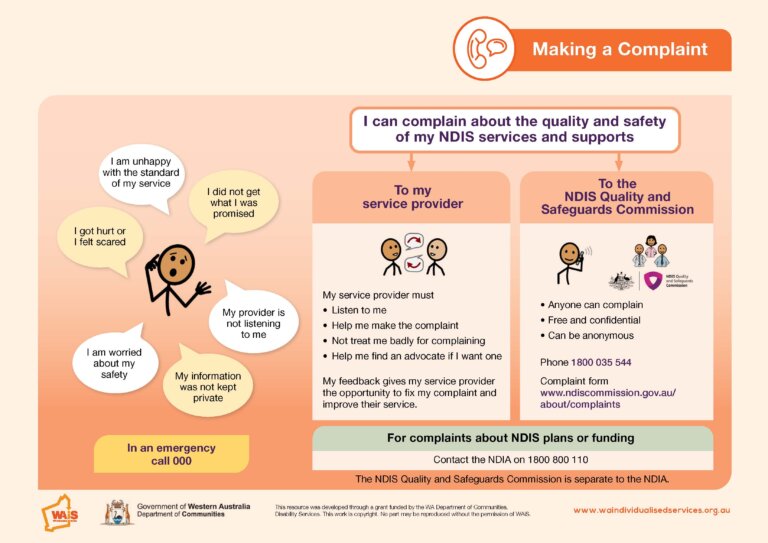
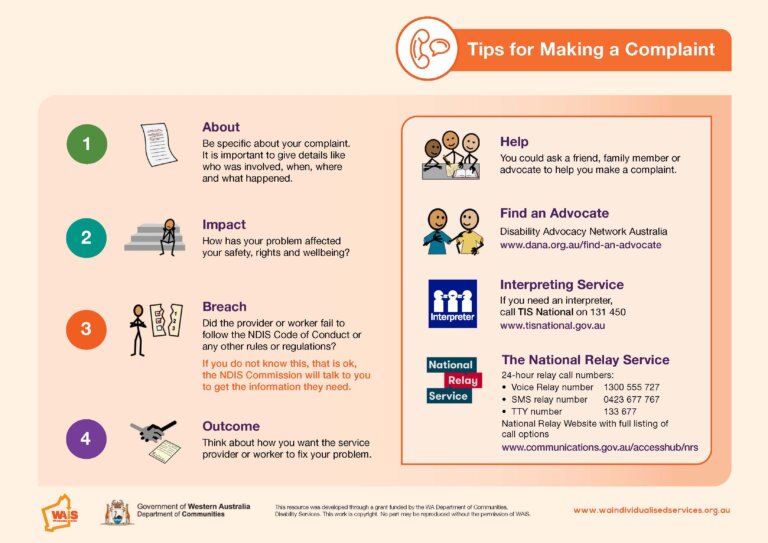
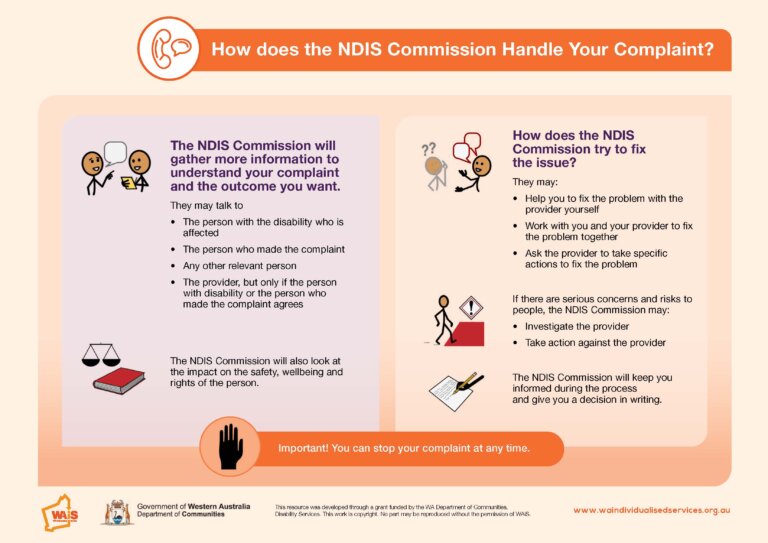
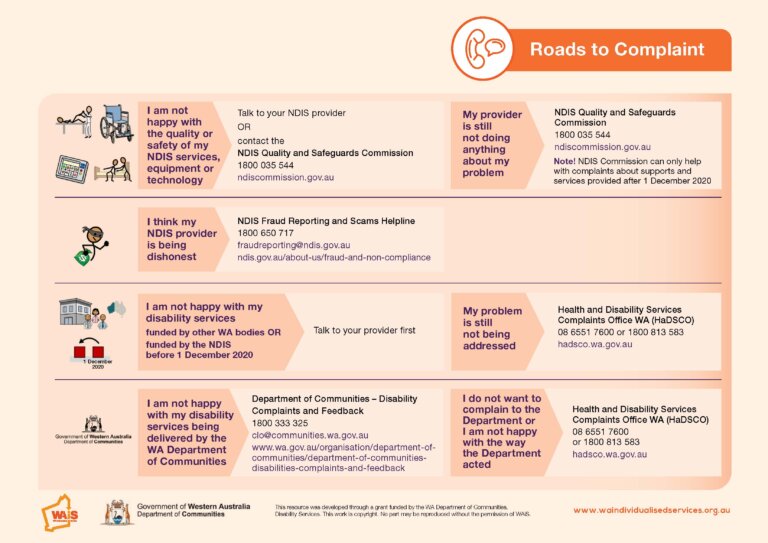
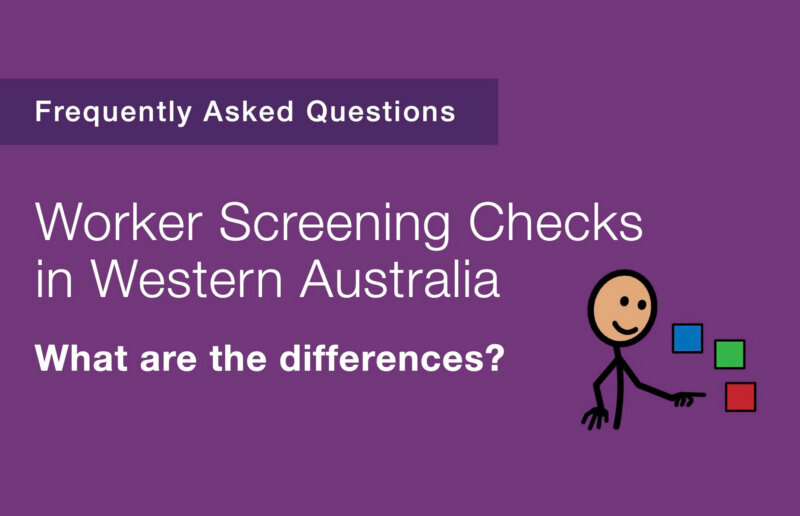
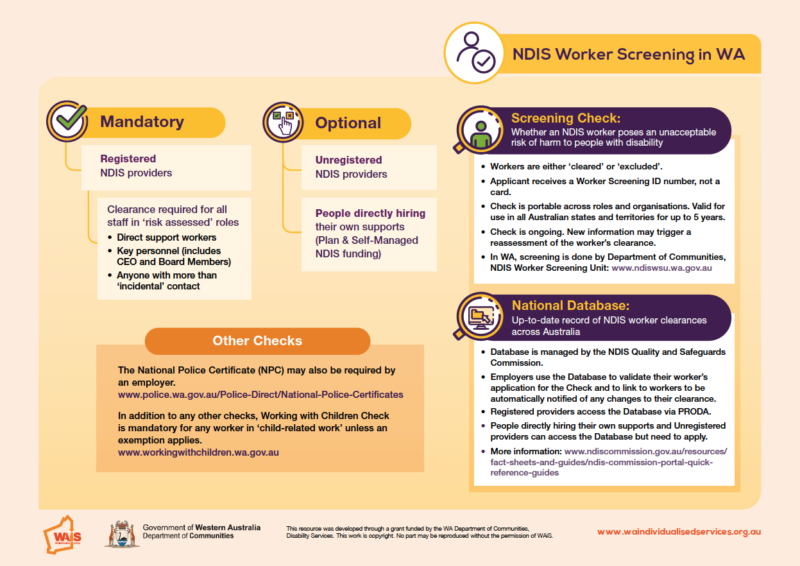
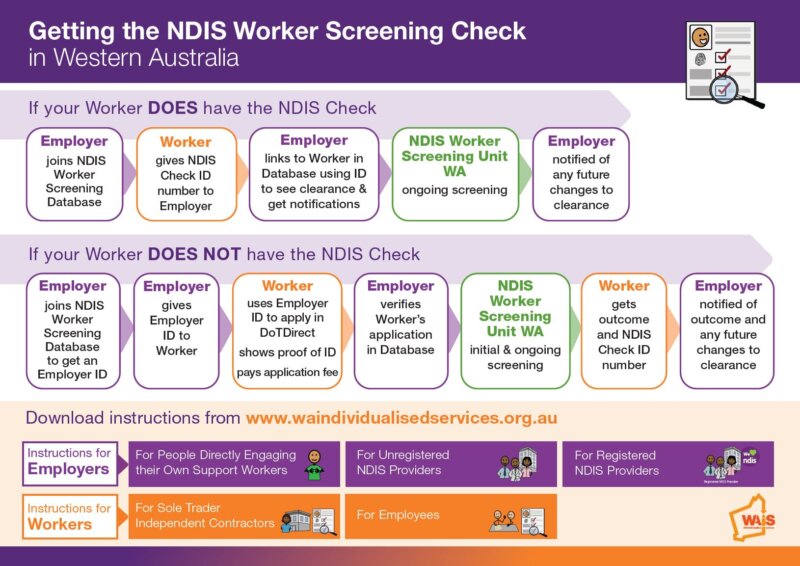
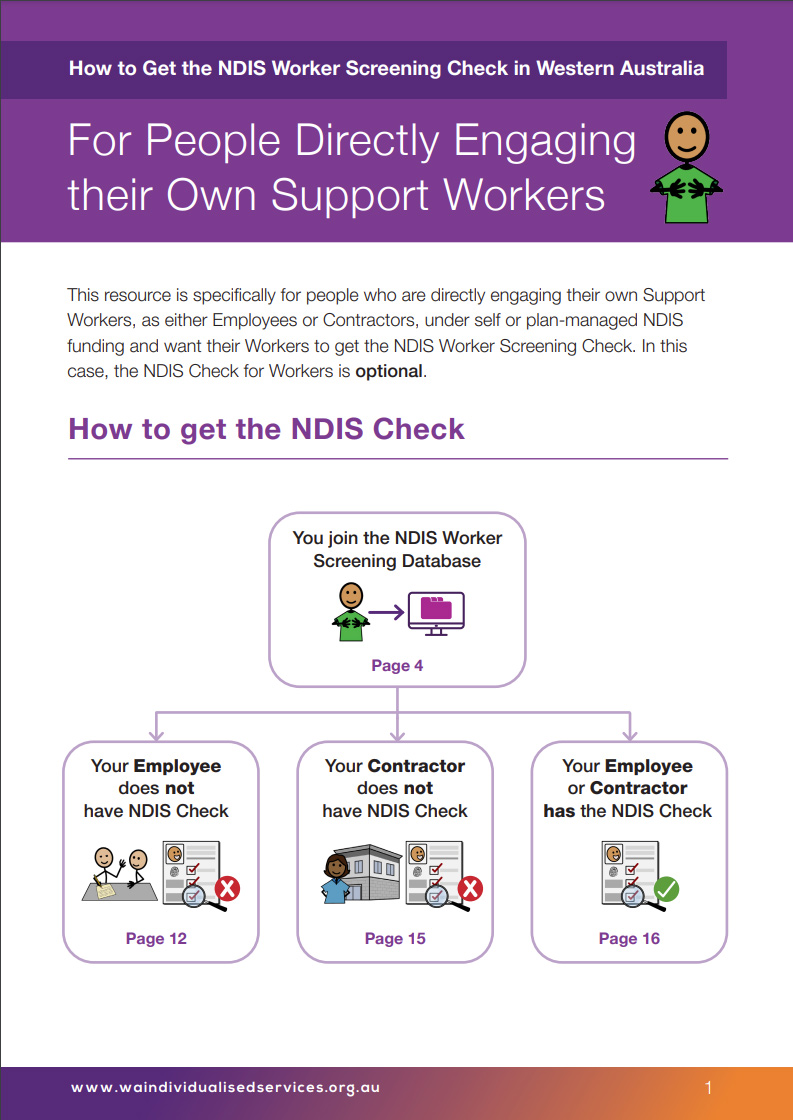
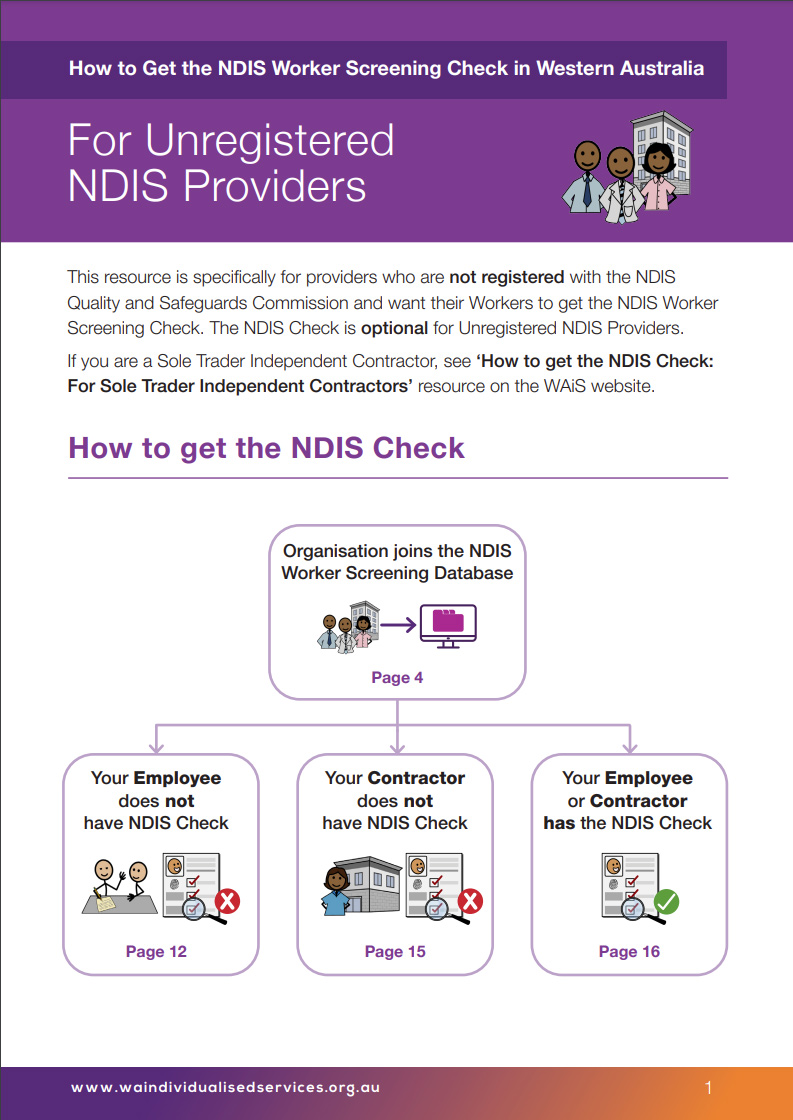
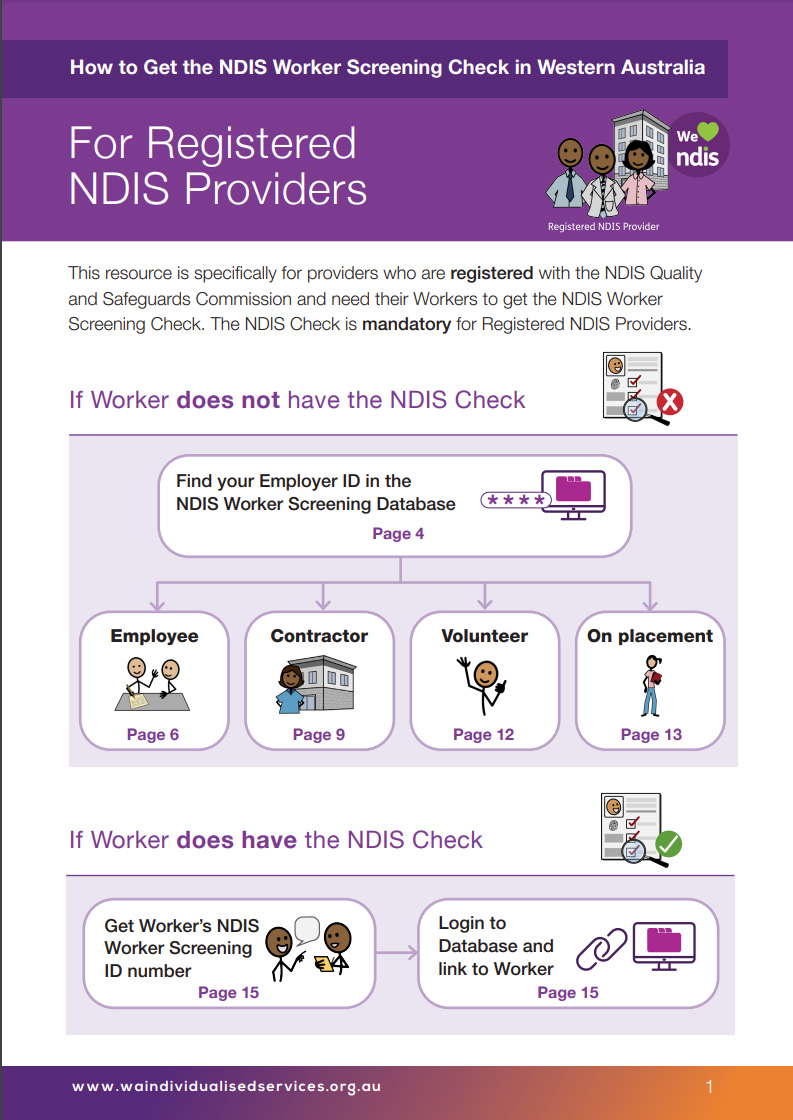
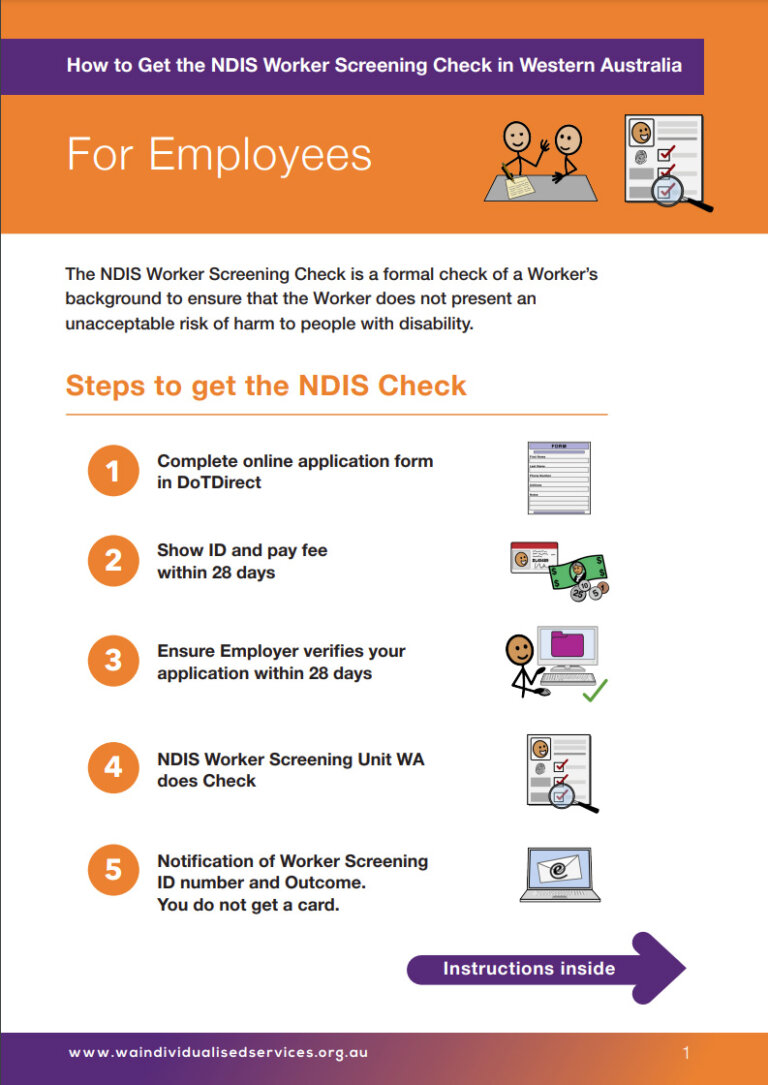
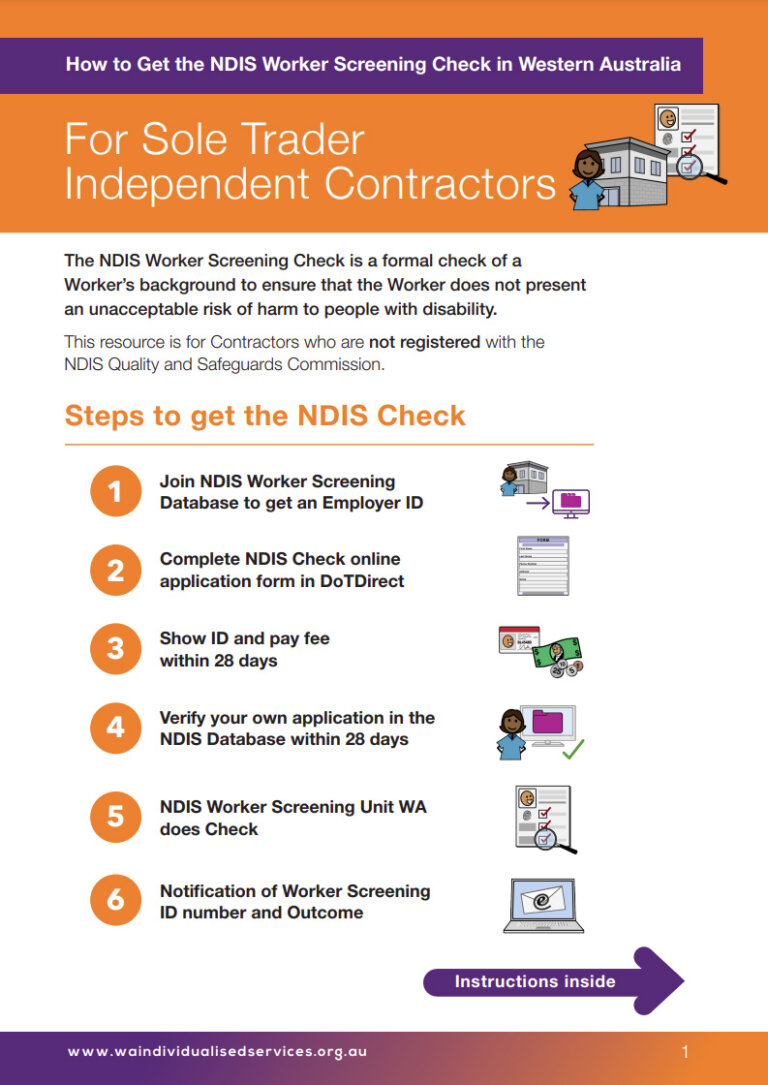
![Strong People RP Activity Cards 145x100mmv8[95] Page 01](https://waindividualisedservices.org.au/wp-content/uploads/2022/06/Strong-People-RP-Activity-Cards-145x100mmv895_Page_01-800x555.jpg)
![Restrictive Practice Activity Cards NEW 145x100mmv7[10] Page 01](https://waindividualisedservices.org.au/wp-content/uploads/2022/06/Restrictive-Practice-Activity-Cards-NEW-145x100mmv710_Page_01-800x552.jpg)